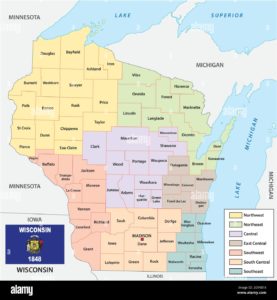 The 2020 presidential election may well have been decided that April.
The 2020 presidential election may well have been decided that April.
How could that be the case? In April 2020, as COVID lockdowns swept the nation, Wisconsin held their regularly scheduled Supreme Court election, with Republican Justice Daniel Kelly losing by about ten points. As a result, the Republican majority on the Court fell to a slim 4-3 margin.
So in December 2020, when the Trump campaign petitioned the court to throw out thousands of ballots, the defection of just one Republican Justice allowed for the Court to reject the bid. Therefore, the best legal avenue for the Trump team to overturn the Presidential race was now firmly closed.
Had Kelly still been on the Court, history might’ve unfolded quite differently. Now Kelly is seeking to avenge that loss, and is running to replace the swing vote in that Dec. 2020 decision. Who knows how important this contest will prove to be in the 2024 presidential race?
This contest isn’t being fought over 2024, though, instead another hot-button issue is driving this campaign.
In the wake of the Dobbs decision, Wisconsin reverted back to the state’s 1849 abortion ban. So the state’s Democratic Governor and Attorney General are currently challenging that law in court; meaning the Wisconsin Supreme Court will likely decide whether or not abortion will be legal in the state.
As you might expect then, the Democratic nominee in this election, Milwaukee Circuit Court Judge Janet Protasiewicz, is making abortion a centerpiece of her campaign. Her TV ads almost always feature her pledge to protect a women’s right to an abortion. In fact, even an outside PAC ad from Michael Bloomberg’s gun safety group spends half of its time on abortion.
Coming off Democrats’ better-than-expected results in the 2022 midterms, Protasiewicz is betting that her best path to victory is to convince enough pro-choice voters to turn out in this off-year April contest.
On the other hand, Kelly is painting Protasiewicz as a politician making pledges unbecoming of a judge. This dichotomy is reflected in their fundraising as well, where Protasiewicz is being fully backed by the Wisconsin Democratic Party while Kelly’s support tends to come from outside conservative groups.
Two weeks out from Election Day, March 21st, Protasiewicz and Kelly held their only debate of the general election phase. Given how much is on the line, it went about as expected, with the candidates trading tough blows. Reid Epstein of the New York Times judged Kelly the winner, if only because the more experienced candidate came off as the better speaker. He also reported that internal polls from both campaigns have Protasiewicz with a single-digit lead.
In both the 2020 race Kelly lost and the 2023 jungle primary, Kelly struggled in the Southwestern corner of the state, which is a hotbed of Obama-Trump voters. Kelly will need to do well there and in the suburbs around Milwaukee, particularly the WOW counties – Washington, Ozaukee and (most crucially) Waukesha.
Unlike most suburbs, the WOW counties still tend to vote Republican. Although like most other suburbs, Democrats are increasingly performing better here. Should Kelly underwhelm here, the GOP will likely regret not getting behind Waukesha County Circuit Court Jennifer Dorrow instead.
As for Protasiewicz, she was the top performing candidate in the primary (46.4%), and a loss here would probably be interpreted as an upset. Of course, she’ll need great turnout in the two major Democratic areas, Milwaukee and Madison. If she can flip Trump counties like Brown (home to Green Bay) and Kenosha, then she should prevail.
Make sure to visit Decision Desk HQ on Election Night, April 4th. We’ll not only be following this race, but another highly-anticipated election, the Chicago Mayoral run-off between Paul Vallas and Brandon Johnson. It’s sure to be an exciting night, and I’ll be back Wednesday with my recap of this Wisconsin Supreme Court contest. See you then!